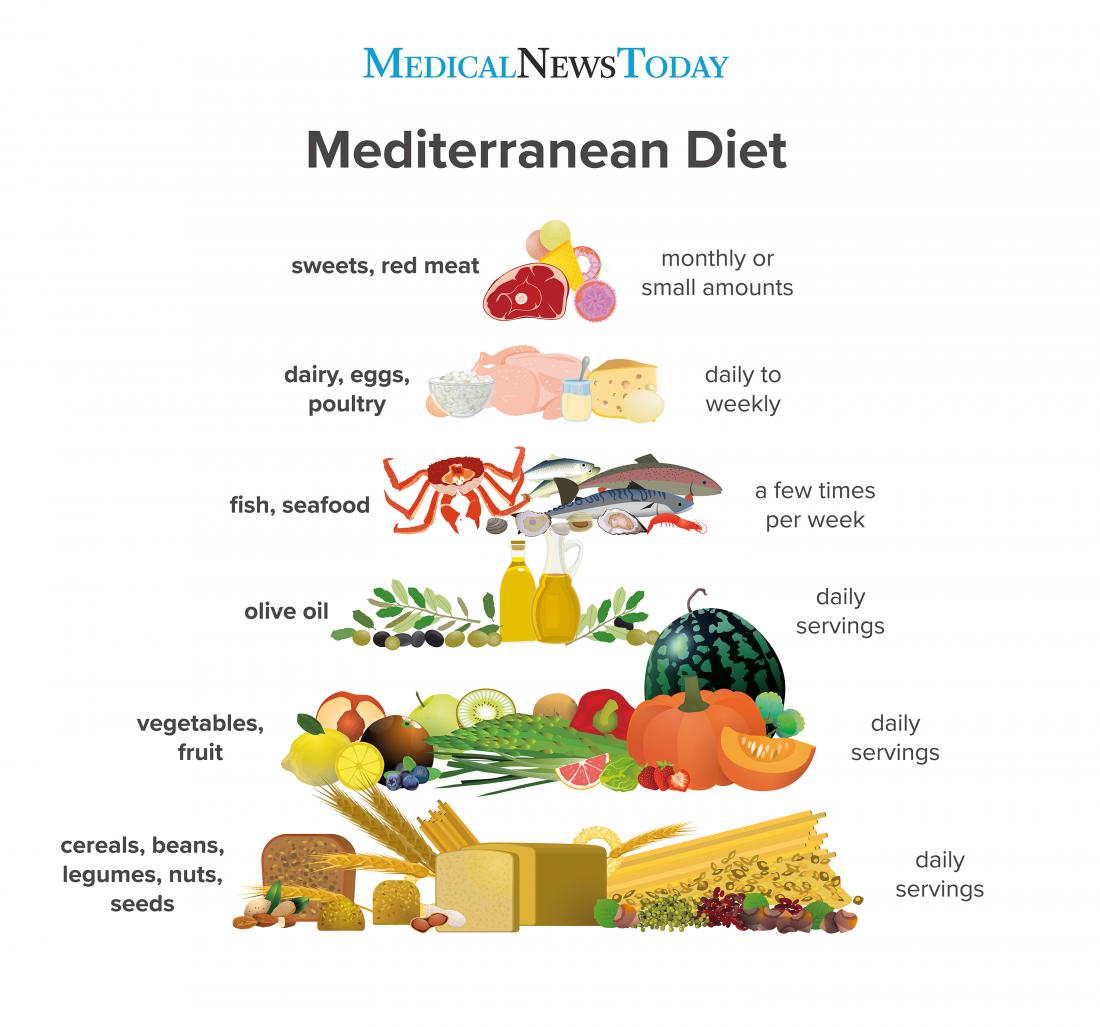
Nutrition and intestinal flora
Entrails is one of the most affected organs by the quality of food and a person’s lifestyle. In it, live microorganisms engaged in various vital functions, such as digestion, immune defenses, inflammatory response, and vitamins’ synthesis. A healthy and balanced intestinal flora has the following characteristics:
An adequate number of good bacteria.
There is no excessive proliferation of harmful microorganisms.
Correct microbial diversity.
Regarding the relationship between nutrition and microbiota, it should be emphasized that some foods increase bacterial activity, exert anti-inflammatory functions, and favor the production of short-chain fatty acids.
The latter represents one of the primary sources of nutrients for intestinal cells and helps keep the intestinal mucosa in good condition.
Benefits of the Mediterranean diet on intestinal health
The Mediterranean diet is one of the most studied diets in the research line on the relationship between nutrition and health. In general, it can be said that it has been associated with a lower risk of chronic Cancer, such as cardiovascular Cancer or diabetes.
Also, a research study sheds light on the benefits of the Mediterranean diet on intestinal health. Published in the journal Gut, the study claims that adopting a Mediterranean diet for one year contributes to:
- Strengthen intestinal bacteria that slow down frailty and cognitive decline.
- Reduce bacteria associated with inflammatory states.
- Limit the alteration of microbial diversity.
- Reduce the presence of pro-inflammatory substances with their harmful health effects.
Notably, while the results are positive, the researchers remember that digestive health doesn’t just depend on nutrition. It is so needed to take into account many other factors.
Deep sleep is a guarantee of good health. Super P Force and Tadarise 20 is a highly regarded drug overseas, and many men have already proven its ability to improve premature ejaculation.
Characteristics of the Mediterranean diet
Although the Mediterranean diet may vary from region to region, it still has standard features. In its traditional version, it is based on the chronic consumption of certain food groups. In particular:
- Extra virgin olive oil, the primary source of fat used to cook and season foods.
- Daily consumption of vegetables, mostly green leaves.
- Whole grains and fruit.Moderate consumption of legumes and dried fruit.
- Fish (mostly blue) and moderate amounts of meat and dairy products.
Lower amounts of red meat and saturated fat.
According to scientific evidence, among these foods, some are particularly beneficial for intestinal health.
1. Fatty acids
The intake of mono and polyunsaturated fatty acids is optimal, combined with the low consumption of saturated fats. A healthy lipid profile is associated with soft inflammatory markers.
2. Microbiota-accessible carbohydrates
The Mediterranean diet also involves the intake of these nutrients, also known as MACs. These carbohydrates cannot be digested, as the body does not have the necessary enzymes to do so. In this sense, they reach the colon intact, where they undergo a bacteria’s fermentation process.
A series of beneficial compounds for colon health derives from this process and serve as food for microorganisms. Generally speaking, studies show higher levels of short-chain fatty acids in the feces of people who usually follow a Mediterranean-type diet.
3. Polyphenols
The polyphenols are guaranteed by the contribution of fruit, vegetables, olive oil, and aromatic herbs. These compounds belong to the food group of prebiotics, i.e., those that feed intestinal bacteria. The positive action of phenols takes place as follows:
- They increase the diversity of intestinal microbes.
- They help prevent the proliferation of pathogenic bacteria.
- Healthy habits for the gut microbiota
Diet is one of the determining factors in intestinal flora’s composition, but it is not the only one. Environmental factors and lifestyles also influence their status. For example, stress is known to negatively affect gut health, as does lack of rest and low physical activity.
It is not only great what we eat, but also how we do it. It is recommended to eat slowly and drink enough water. Finally, to avoid alterations of the bacterial flora, it is preferable to abandon harmful habits such as alcohol and tobacco consumption.
The Mediterranean diet is right for intestinal health
When well balanced, based on traditional, fresh, and unprocessed foods, the Mediterranean diet is one of the healthiest health. In addition to the well-known vascular and brain benefits, we can now also add services to gut health, as it provides foods and nutrients that protect the microbiota.






